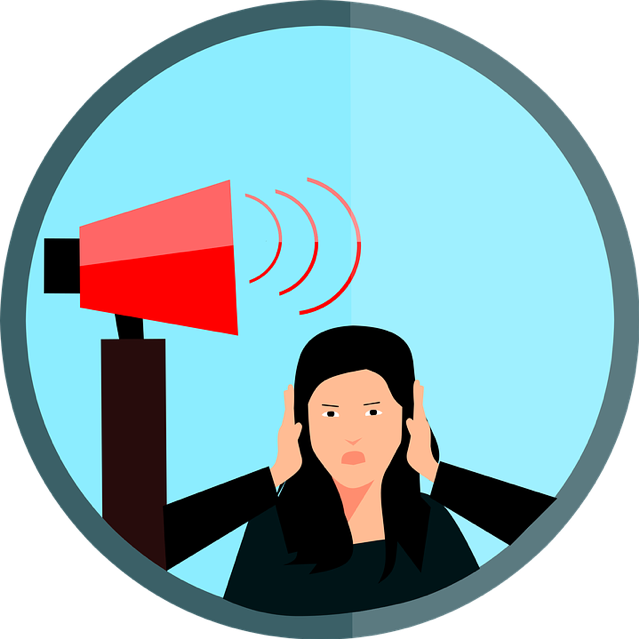Hypersensitivity to sound is a condition in which sound waves from a certain frequency enter into your ear and the brain interprets them in an exaggerated manner, causing an overwhelming reaction. This condition is more commonly known as Hyperacusis. Hyperacusis is an extremely rare condition that causes some sounds appear unbearably loud to the person who suffers from this disorder. 1 in 1500 people has Hyperacusis and most people who have Hypercusis also suffer with Tinnitus, which is a disorder that causes you to hear loud ringing noise in your ear. It is different from any other hearing disorders like Phonophobia and Misophonia.

(source)
A human ear has the frequency of hearing a wide range of sounds. Numbers range from 20Hz – 20 kHz. Anything above this range will sound unbearably loud to a normal human being. A person suffering from hypersensitivity to sound or Hyperacusis may find sounds that are well within the normal hearing range to be incredibly loud. Noises like babies crying, car engines starting, and in some instances, even conversational voices of people who speak in a slightly higher tone, can cause an abnormal reaction.
Hypersensitivity to Sound
Causes
The causation of this disorder is to do with the brain, since the brain is responsible for interpreting sound waves and forming them. Causes include situations that could have caused some sort of brain damage. Injuries point to the most convincing cause of brain injury that could lead to hyperacusis. Other common causes include being exposed to loud noises. However, some people are just born with hypersensitivity to sounds maybe because they inherit it from their parents.
Side Effects
This disorder can be very painful for some people because it can have a traumatic effect in your life. The traumatic effect is usually a by-product if the Hypersensitivity or Hyperacusis is an incidental occurrence. There have been many reports of students being exposed to a loud noise and then developing Hypercusis, which ultimately resulted in them being scarred for life, e.g., losing interest in studies and being unproductive. People who start developing Hyperacusis socially isolate themselves because they are always consciously blaming themselves for being a trouble for others. This can also Lead to severe depression, and in some cases, insomnia.
Symptoms
The general symptoms are headaches, pain, and fear. On some rare occasions, a person can also develop insomnia. A person with this disorder is also likely to run into situations that cause him to go into a full-blown panic attack. Hyperacusis has a link with other diseases and disorders. A symptomatic patient of hypersensitivity is more likely to display an introverted personality. This is evident because avoiding interactions gives you a better chance of not running into loud places or people. A person with this condition can experience a pinching pain in the ear if he/she hears a loud sound.

(source)
Treatment
There is no medically facilitated treatment for hypersensitivity to sounds yet. Researches are underway on this illness. However, many people have ascribed to seeking help in the form of therapy. A lot of people benefit from therapy and there is therapy for almost all kinds of illnesses. The go-to therapy for Hyperacusis is sound therapy. This therapy has worked for many people. Apparently, it helps getting your sensitivity to normal by using hearing devices or noise generators that can reduce your sensitivity to some sounds over a course of time.
Another option is Cognitive Behavioral Therapy, otherwise known as CBT. This therapy focuses on getting you in control of the negative thoughts in your brain. It has positive results since this disorder has a connection with the health of your brain. A therapist usually counsels the patient over a number of sessions in order to get to the root of the problem and try to understand it on a subconscious level. Other therapies include several different types of relaxation therapies, massages, sauna and even acupuncture.
Hypersensitivity to Sound: Final thoughts
Dealing with a disorder that has no procedural treatment can be extremely tough and it is not uncommon to lose your will to live. What is most important when coping with hearing disorders is keeping your mind and body happy. Living your life in a positive and fulfilling way can help you fight any problems that the world provides. If you look closely, you will realize that this is the same objective that most therapies are trying to achieve.
If you face problems with Hyperacusis, please contact Stephen Katz at the Misophonia Cognitive Center™.
